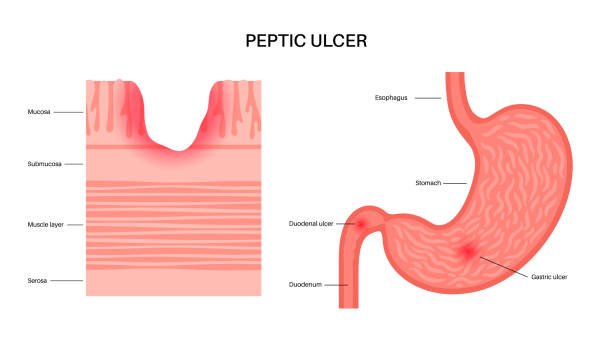Table of Contents
What Causes Long Term Stomach Pain?
Introduction
A dull ache that lingers for weeks, a tightness that refuses to loosen – long-term stomach pain can be a frustrating and concerning experience. While occasional stomach aches are common, persistent discomfort can signal a variety of underlying conditions. This article delves into the potential causes of long-term stomach pain, helping you understand what might be causing your discomfort and navigate the path to a diagnosis and treatment plan.
Chronic Culprits: Unveiling The Causes Of Long-Term Stomach Pain
Several conditions can trigger long-term stomach pain. Here’s a look at some of the most common culprits:
-
Irritable Bowel Syndrome (IBS)
This chronic condition affects the large intestine and causes symptoms like cramping, bloating, gas, diarrhea, and constipation. The exact cause of IBS is unknown, but stress, diet, and changes in gut bacteria are thought to play a role.
-
Peptic Ulcers
These are sores in the lining of the stomach or duodenum (the first part of the small intestine). They can cause burning pain in the upper abdomen, especially on an empty stomach or at night. Ulcers are often caused by infection with H. pylori bacteria or by long-term use of nonsteroidal anti-inflammatory drugs (NSAIDs).

-
Gastroesophageal Reflux Disease (GERD)
GERD occurs when stomach acid flows back up into the esophagus, causing heartburn, a burning sensation in the chest. It can also lead to stomach pain, nausea, and difficulty swallowing.

-
Inflammatory Bowel Disease (IBD)
These chronic conditions involve inflammation of the digestive tract. Ulcerative colitis affects the inner lining of the colon, while Crohn’s disease can affect any part of the digestive tract. Both conditions can cause abdominal pain, cramping, diarrhea, and rectal bleeding.
Less Common Causes To Consider
While less frequent, some other conditions can also cause long-term stomach pain:
-
Endometriosis diagram This condition occurs when tissue similar to the lining of the uterus grows outside the uterus. It can cause pelvic pain, pain during menstruation, and sometimes even pain in the lower abdomen.
-
Celiac Disease
An autoimmune disorder triggered by gluten, a protein found in wheat, barley, and rye. Celiac disease can cause damage to the small intestine, leading to abdominal pain, diarrhea, bloating, and weight loss.
-
Chronic Pancreatitis
Inflammation of the pancreas, a gland that aids digestion, can lead to persistent upper abdominal pain that may radiate to the back.
Factors That Can Worsen Long-Term Stomach Pain
Certain lifestyle factors can exacerbate long-term stomach pain, regardless of the underlying cause. These include:
-
Diet
Spicy, greasy, or acidic foods can irritate the digestive system and worsen pain.
-
Stress
Stress can worsen digestive symptoms in many conditions, including IBS and peptic ulcers.
-
Alcohol And Smoking
These substances can irritate the stomach lining and contribute to pain.
-
Lack Of Sleep
Inadequate sleep can disrupt gut health and worsen digestive issues.
When To Seek Medical Attention
While some causes of long-term stomach pain might be mild and manageable with lifestyle changes, it’s crucial to seek medical attention promptly if you experience:
- Severe or persistent pain
- Fever
- Nausea and vomiting, especially if bloody
- Blood in your stool
- Difficulty passing urine or burning with urination
- Unexplained weight loss
Early diagnosis and treatment can prevent complications and ensure a faster recovery.
FAQs
-
Can Anxiety Cause Long-Term Stomach Pain?
Anxiety can trigger stomach aches and worsen existing digestive issues. Relaxation techniques might be beneficial.
-
What Foods Should I Avoid If I Have Long-Term Stomach Pain?
Keeping a food diary can help identify foods that trigger your discomfort. Generally, it’s best to avoid spicy, greasy, and acidic foods.
-
Are There Any Home Remedies For Long-Term Stomach Pain?
For mild pain, remedies like staying hydrated, eating bland foods, and applying a heating pad can provide temporary relief. However, consult your doctor for persistent pain.
-
What Tests Can Diagnose The Cause Of Long-Term Stomach Pain?
Blood tests, stool tests, endoscopy, and imaging tests like X-rays, ultrasounds, or CT scans may be used depending on the suspected cause.
-
How Can I Manage Long-Term Stomach Pain?
Treatment depends on the underlying cause. It may involve medication, dietary changes and stress management techniques.
Conclusion
Long-term stomach pain can be disruptive, but understanding potential causes and available management strategies can empower you to take control of your health. Remember, early diagnosis and treatment are crucial. Work with your doctor to identify the underlying cause of your pain and develop a personalized treatment plan. By incorporating lifestyle modifications and stress management techniques, you can manage your discomfort and improve your quality of life. Don’t hesitate to prioritize your well-being and advocate for your health needs.
References
- Mayo Foundation for Medical Education and Research. (2022, August 5). Peptic Ulcers.
- National Institute of Diabetes and Digestive and Kidney Diseases. (2022, July 28). Irritable Bowel Syndrome (IBS). https://www.niddk.nih.gov/health-information/digestive-diseases/irritable-bowel-syndrome
- American College of Gastroenterology. (2022, March 22). Gastroesophageal Reflux Disease (GERD).
Discover more from Pain Relief Methods
Subscribe to get the latest posts sent to your email.
